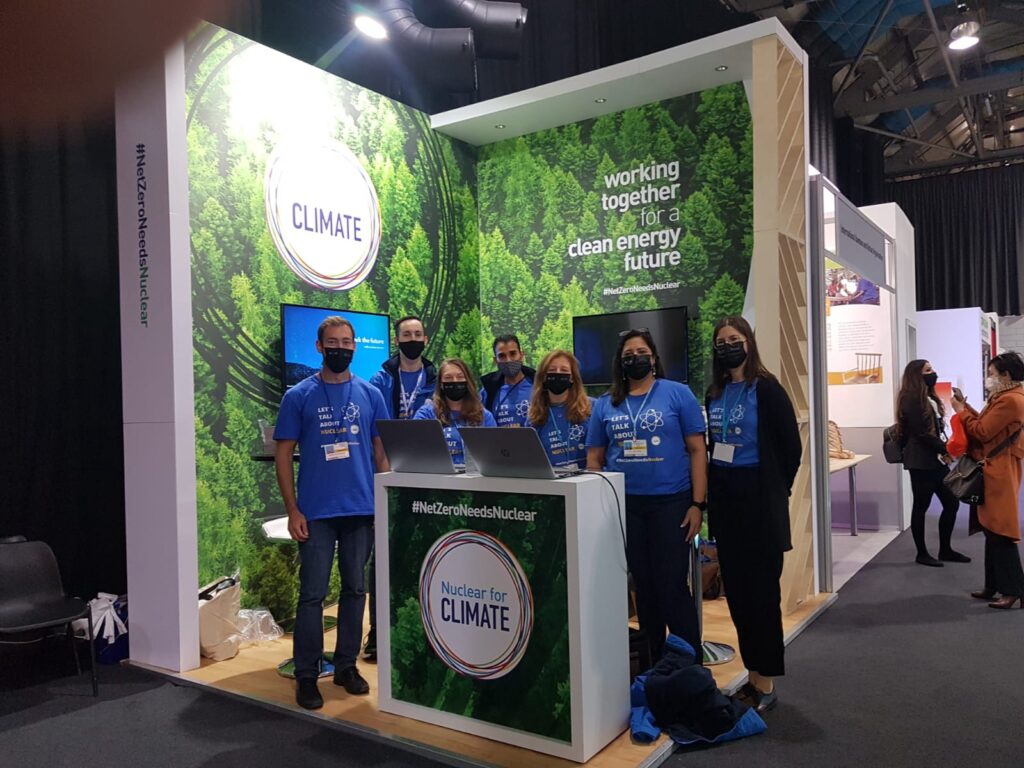Despite travel chaos, Gen A and Young Generation Network campaigners eventually made it to Glasgow
Author: David de Caires Watson

A dark and stormy October night led to chaos for YGN and Generation Atomic campaigners attempting to travel by train from London to Glasgow on Sunday.
High winds and heavy rain caused a tree to damage overhead lines on the West Coast Main Line near Rugby, curtailing services for the rest of the day. Similar damage on the East Coast Main Line near Peterborough was repaired early in the afternoon, enabling some plucky activists to leap onto whatever trains were leaving.
Generation Atomic’s Rob Loveday was one of them — he made it as far as Milton Keynes, but after a two-hour wait, the train headed back to Euston, where an anxious gaggle of campaigners was waiting. Eventually, in dribs and drabs, most of them made their way north. Rob eventually made it to the Generation Atomic digs after 13 hours on the road…
The situation is an embarrassment for the UK, especially seeing as the country’s Environment Minister Zac Goldsmith was forced to abandon his train to the conference. However, it underscores the need to build resilience into systems to cope with the increase in severe weather that global warming will bring.

Nuclear energy united Europe. Now it is dividing the club.
The Economist reminded us this weekend how continent-wide cooperation on the peaceful uses of atomic technologies are a big part of the founding story of the European Union. In the 1950s, the potential of nuclear energy to meet growing demand and reduce oil and coal imports from unfriendly or unstable regions of the world was something that united all of Europe. Today, although multiple UN agencies and the International Energy Agency think nuclear is vital to our climate goals, the EU is split into two camps: those who think nuclear is green, and those who don’t.
Germany is the loudest opponent, promising a complete exit from nuclear by 2022. Austria and Luxembourg are following Germany’s lead. This anti-nuclear grouping is fighting hard to prevent nuclear from being included in the EU green finance taxonomy (which is vital to unlocking private investment in sustainable energy projects).
France leads a much larger pro-nuclear alliance of ten countries, including Czechia, Bulgaria, Croatia, Finland, Hungary, Poland, Romania, Slovakia, and Slovenia, and has the support of a post-Brexit UK, too. Right now, it seems this pro-nuclear bloc is winning the argument, particularly given the clear impact Germany’s nuclear phaseout has had on its carbon emissions and air pollution targets; coal, the most deadly of all fossil fuels, remains the backbone of the German electricity system. The question is: how will this divide play out at COP26? Keep a close eye on the messages from EU member states in the first few days of COP.
Spotted at COP: pro-nuclear churchmen

Other VIPs spotted were Dr. Fatih Birol of the IEA and the Archbishop of Canterbury Justin Welby. A brief chat with the latter led to the revelation (if that’s the correct word) that the head of the Church of England is broadly in favour of nuclear power, being surprisingly well informed about the technology. A miracle — praise the Lord!!


